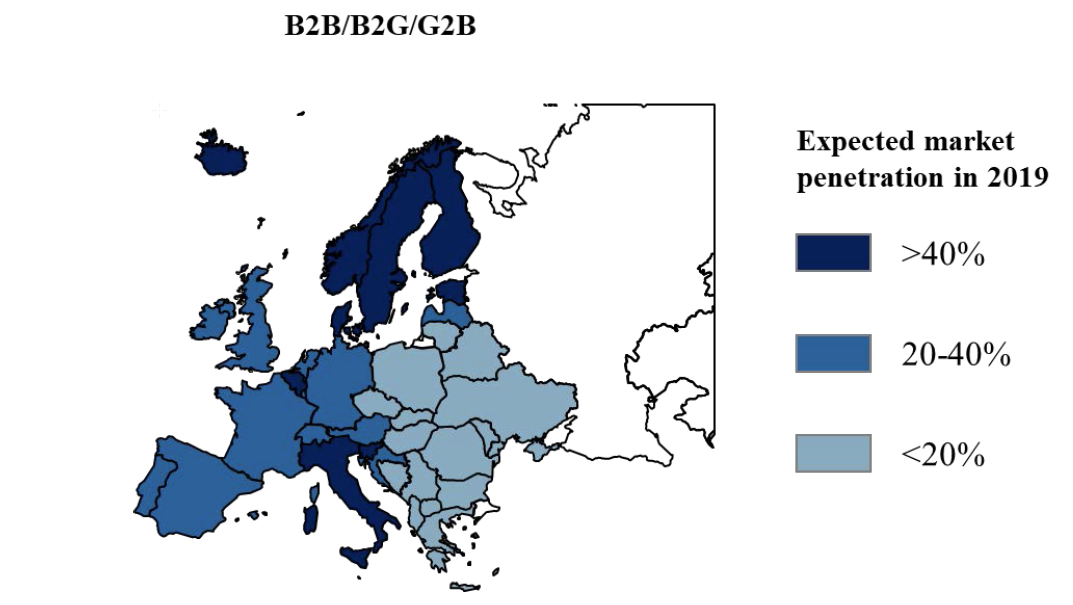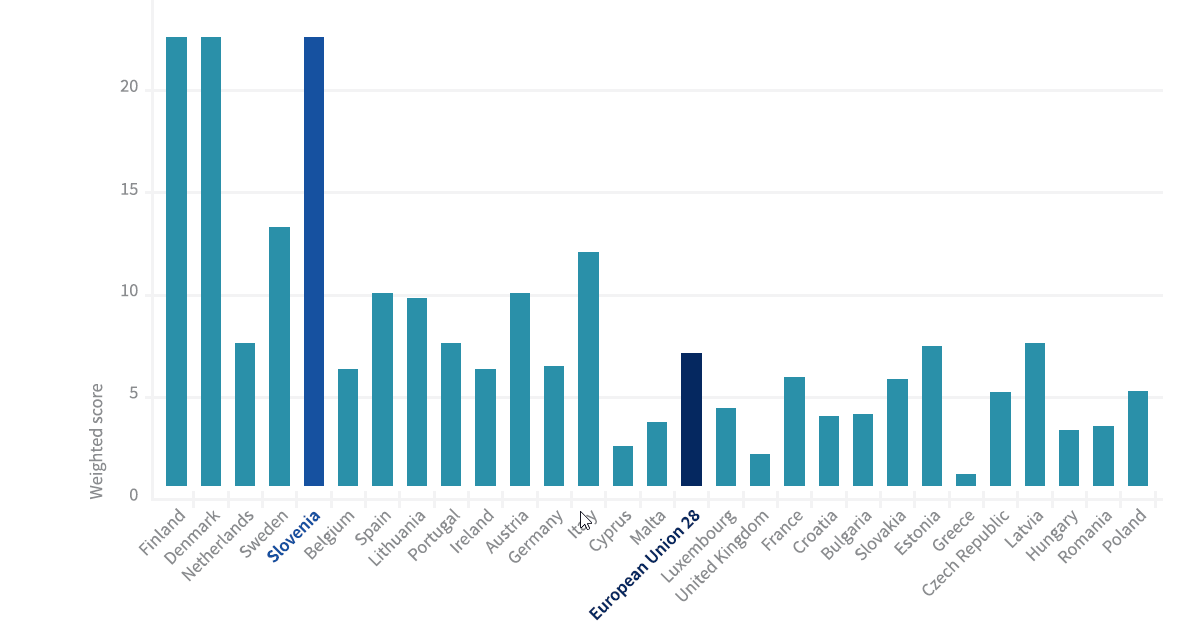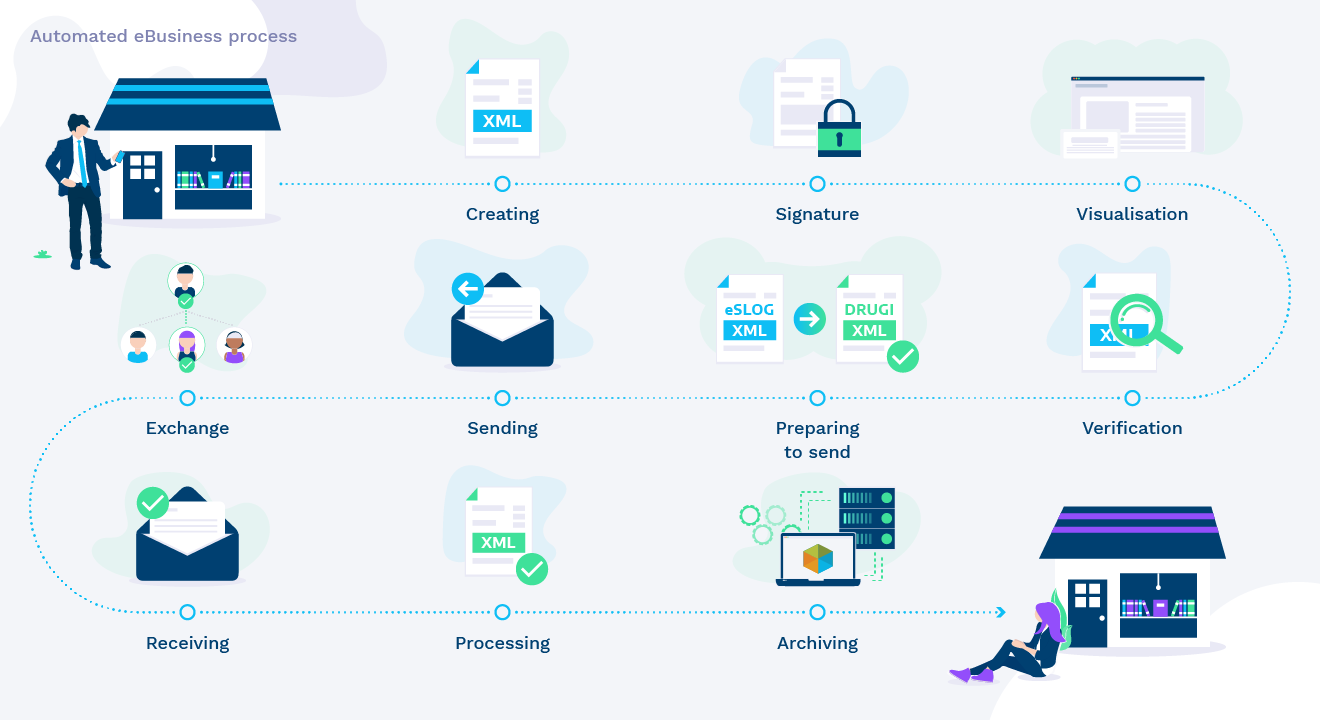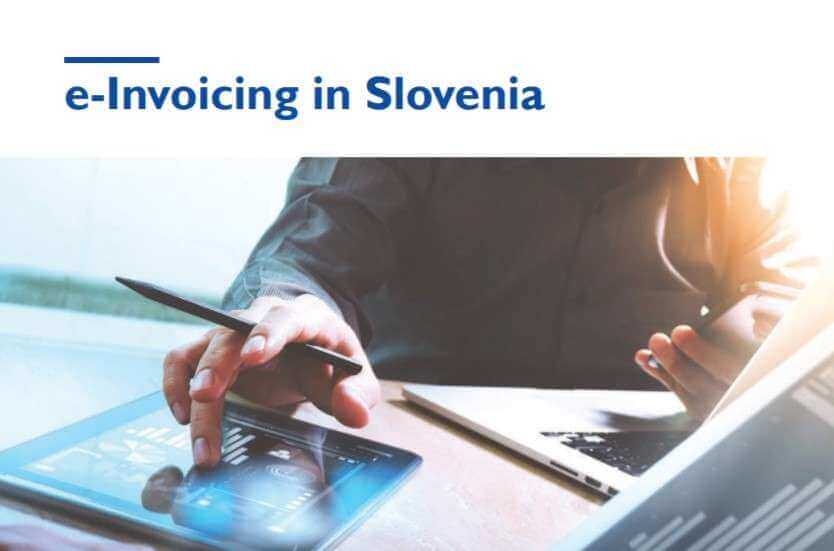eBusiness
Advantages of eBusiness
In Europe, eBusiness has been established for decades, especially in supply chain operations. It was first introduced by large retail chains, which soon realized the advantages of using eBusiness between suppliers and customers:
- Reduction of costs. The use of eBusiness reduces the cost of paper, printing and shipping. Due to the automation of processes, the time spent by employees is considerably reduced and the productivity increases. An initial investment into a system that enables eBusiness can be repaid quickly.
- Automation and integration of procedures. Automation of the issuing, receipt, processing and storage of the eDocuments and integration with exchange systems enable automated implementation without manual work.
- Faster delivery and processing of eDocuments. An efficient process of sending and receiving and integration with eDocument distribution systems enable reliable, secure and fast information exchange.
- Higher efficiency and fewer human errors. Manual entry of data from the document into to the information system is no longer necessary, thereby reducing the possibility of errors.
- Greater security. Invoices can be exchanged via secure and protected communication channels. The use of an electronic data interchange or of an advanced electronic signature ensures the authenticity of the origin and the integrity of the electronic invoices’ content.
- Centralisation of information. All documents are stored in one place and accessible via the same user interface.
- Traceability of processes. The sender of the document can obtain feedback on the delivery and status of the document from the recipient.
- Faster and secure archiving of documents. The eDocuments are automatically archived in the appropriate electronic document archiving system.
Legislation
eBusiness is governed by various laws. The general rules are defined in the Electronic Business and Electronic Signature Act (ZEPEP) and eIDAS. eInvoicing is governed by the Value Added Tax Act (ZDDV). The storage of electronic documents is defined in the Protection of Documents and Archives and Archival Institutions Act (ZVDAGA). Doing business with budget users is governed by the Provision of Payment Services to Budget Users Act (ZOPSPU-1A).
Standards for eBusiness
Effective eBusiness is not possible without the use of standardized electronic documents that define the structure and content of the information. This ensures that both the issuer and the recipient equally understand the content of the exchanged document.
There are a large number of different standards for eBusiness. In Slovenia, eSLOG documents, covering all major processes in the supply chain, are mainly used in the economy and in public administration:
- eSLOG purchase order
- eSLOG dispatch advice
- eSLOG invoice
eSLOG documents are continuously updated with changes in legislation and established business practices. The eSLOG invoice was upgraded to version 2.0 in 2018 as part of the ROSE project, which complies with the European semantic standard EN 16931 and enables cross-border eBusiness between all EU Member States.
Doing business with business partners
Finding business partners for eBusiness.
The eRegistry helps quickly and easily find business partners with whom we can do business electronically.
Doing business with budget users
Exchange of eInvoices with Slovenian budget users is performed through a single entry and exit point of the Public Payments Administration (PPA).
Recommendations for eBusiness
Slovenian National eInvoicing Forum publishes recommendations for efficient and secure eBusiness.
Situation in Slovenia and in Europe
Electronic invoices are among the best known electronic documents in Slovenia due to their mandatory transmission to budget users. It is a particularly positive matter for Slovenia that it has supported a modern and advanced eInvoicing approach, where the vast majority of eInvoices are exchanged through eExchange network providers, similar to Belgium, Switzerland and the Nordic countries.

Slovenia has made a major step forward in recent years and is among the most advanced countries in Europe in terms of the use of eInvoices. According to the DESI 2018 index (Digital Economy and Society Index), as measured by the European Commission, Slovenia ranks first in the category of Business digitalization – eInvoices, along with Finland and Denmark.

Major Slovenian ERP software providers have their software solutions integrated with eExchange providers, thus enabling their users to integrate into the wider ecosystem without additional investment, where exchange is possible between all participating partners in the network and between different networks with the highest possible degree of automation. In this way, in order to send out and receive eInvoices and other business documents, users do not need to use additional software solutions, where they would have to manually copy, import or export documents. Instead, they execute all the procedures through existing software solutions already used in the company.
According to the Public Payments Administration of the Republic of Slovenia, the share of eInvoices received by budget users from business entities and individuals through eExchange providers is continuously increasing.



